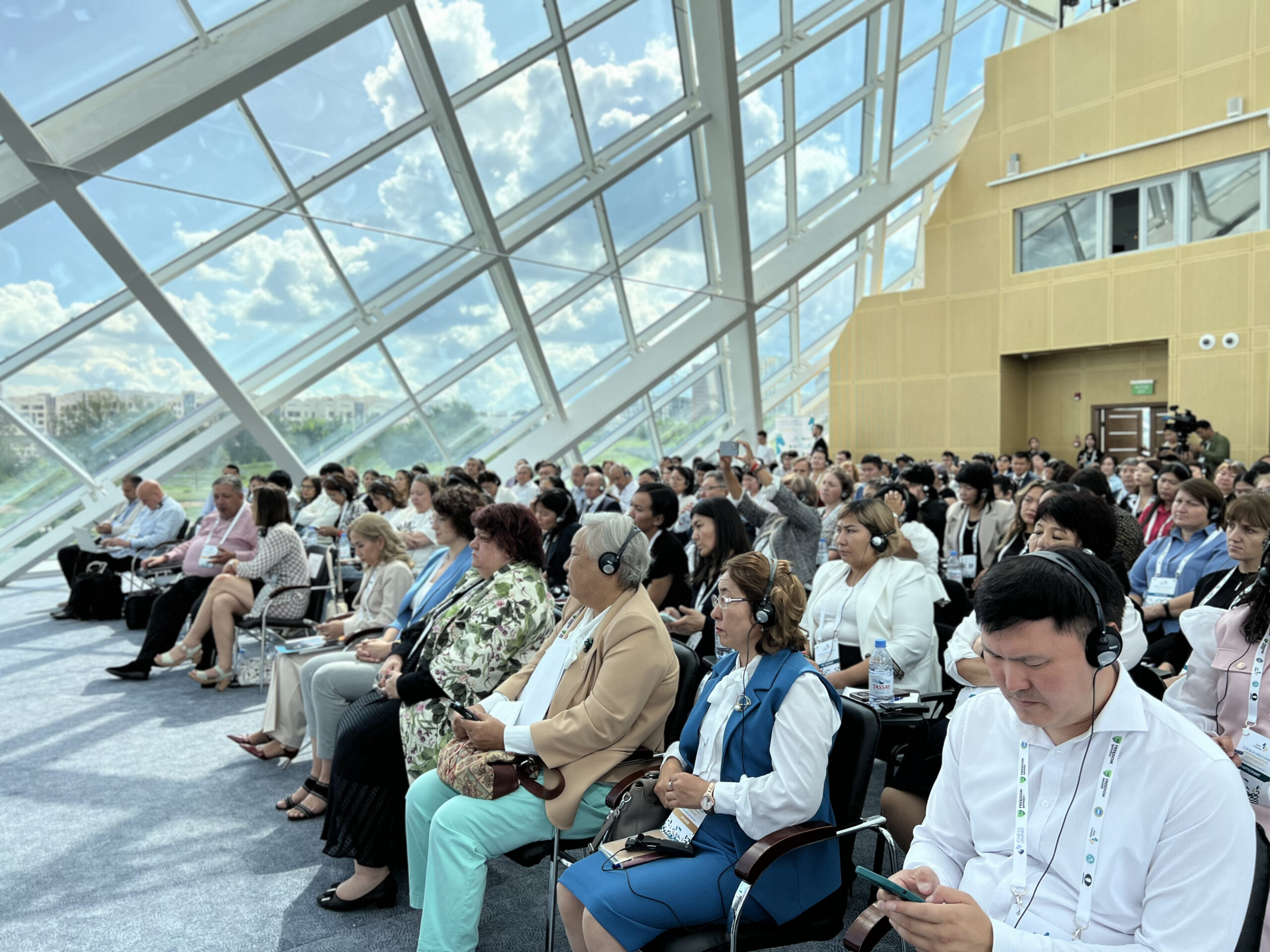ASTANA—Astana hosted the second international conference dedicated to chess in education that kicked off on Aug. 21. Over 200 participants, including global chess experts and educators from Kazakhstan, attended the conference, which focused on integrating chess into educational systems, particularly in the digital age and the growing influence of Artificial Intelligence (AI).

Chess in Education Conference in Astana. Photo credit: Kazakhstan Chess Federation.
Speakers from Spain, Türkiye and Armenia, where chess has been effectively implemented in educational curricula, shared their insights and best practices, highlighting the importance of chess in fostering 21st-century skills, such as critical thinking, decision-making and strategic analysis.
Global perspectives and local initiatives
“Kazakhstan is one of those unique countries that has recognized the value of chess as an educational tool and has a wonderful project going on across the country. This conference is arranged to share ideas about what is happening in Kazakhstan and what is happening in other parts of the world,” said Jerry Nash, the chair of the FIDE Chess in Education Commission.

Jerry Nash, the chair of the FIDE Chess in Education Commission and Marta Amigo Vilalta, coordinator of this Spanish Chess in School project in Catalonia during pannel discussions in Astana. Photo credit: The Astana Times / Nagima Abuova.
“I am sure this conference will bring valuable information and inspiration for further work. In May, we visited Spain to study the experience of introducing chess into educational systems. We plan to expand our project starting in September of this year,” said Darmen Sadvakasov, the First Vice President of KazChess.
In 2021, FIDE included the Catalan program as a benchmark program of best practices in educational chess in its report. According to Marta Amigo Vilalta, coordinator of this Spanish Chess in School project in Catalonia, chess enhances students’ cognitive abilities and complements traditional classroom learning.
“Children can learn many valuable skills through activities like chess. While playing, they engage in something enjoyable, yet they develop critical abilities essential for their future. Chess is a powerful educational tool as it teaches children how to make decisions, consider different options and think strategically,” said Amigo Vilalta.

From left to right, Jerry Nash, Marta Amigo Vilalta, and Darmen Sadvakasov. Photo credit: The Astana Times / Nagima Abuova.
Amigo Vilalta also shared Catalonia’s experience integrating chess as an elective course since 2012. She noted that since teachers are deeply familiar with their students, having the same teachers who already work at the school lead the chess program is essential, as it allows a seamless connection between chess and the overall learning in the classroom.
When asked about challenges in education and chess integration, Nash noted disengaged students who may need more skills to succeed in the classroom, the misconception that teachers need to be chess experts to use it effectively, and the turnover rate among teachers.
“Chess in education is not about producing grandmasters or running after-school programs. It is about developing critical thinkers. For teachers, even minimal chess knowledge can greatly benefit students. In many countries, scholastic chess is one person away from extinction. Training more teachers prevents that from happening,” said Nash.
Kazakhstan’s chess education plan
Sadvakasov discussed the federation’s achievements in integrating chess into schools and Kazakhstan’s experience in developing and adopting the Comprehensive Chess Development Plan for 2023-2027.

Darmen Sadvakasov, the First Vice President of KazChess discussing Kazakhstan’s chess education plan at the second international conference dedicated to chess in education that kicked off on Aug. 21. Photo credit: The Astana Times / Nagima Abuova.
“In collaboration with the Ministry of Education and local executive bodies, it was possible to launch a pilot project introducing chess as an elective in 42 schools across seven regions of Kazakhstan. This initiative reached approximately 1,000 first-grade students in the last academic year,” said Sadvakasov.
KazChess has developed the Fundamentals of Chess curriculum for grades 1-4, which will be implemented in the 2024-2025 academic year. In collaboration with regional education departments, a list of 767 schools has been compiled, confirming their readiness to implement chess as an elective component.

Photo credit: The Astana Times / Nagima Abuova.
“Our target is to cover approximately 20% of schools in the country, which is about 1,400–1,500 educational institutions,” said Sadvakasov.
The federation also has prepared an advanced training course for teachers. After approvals, teachers in all regions will be trained online and offline.
